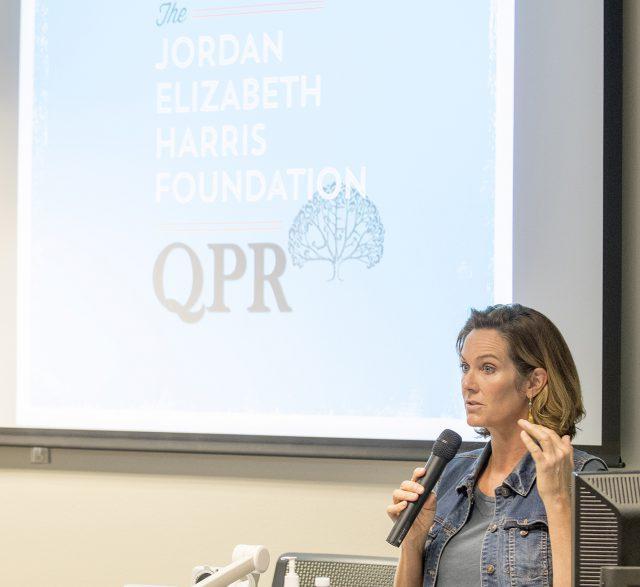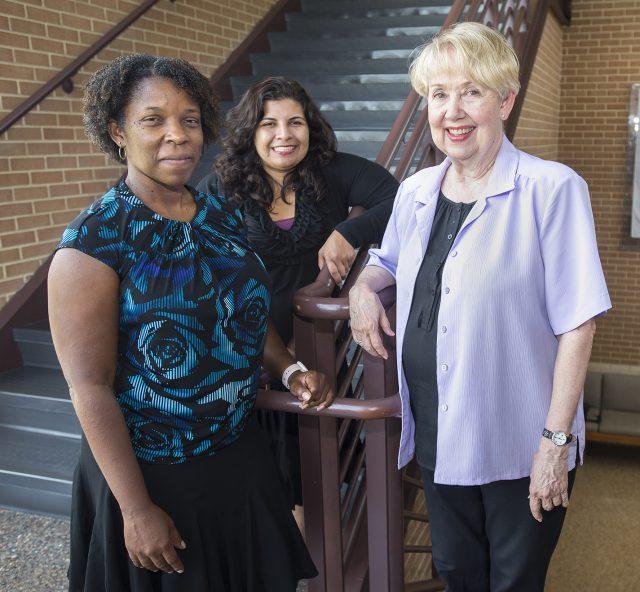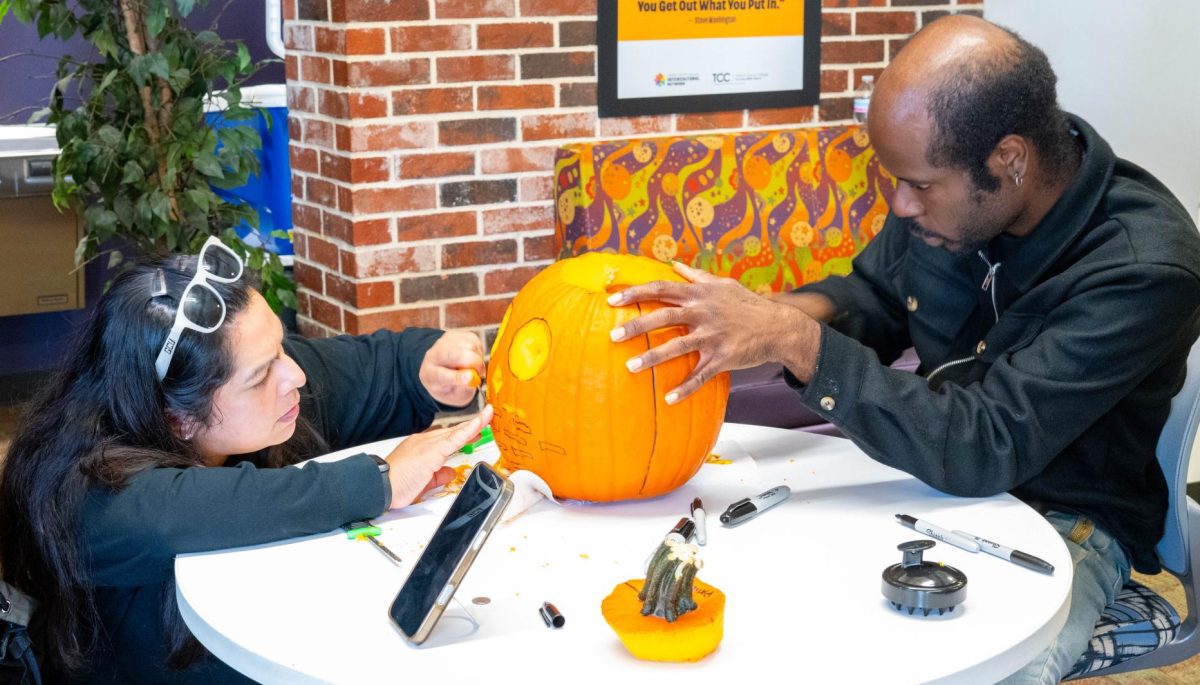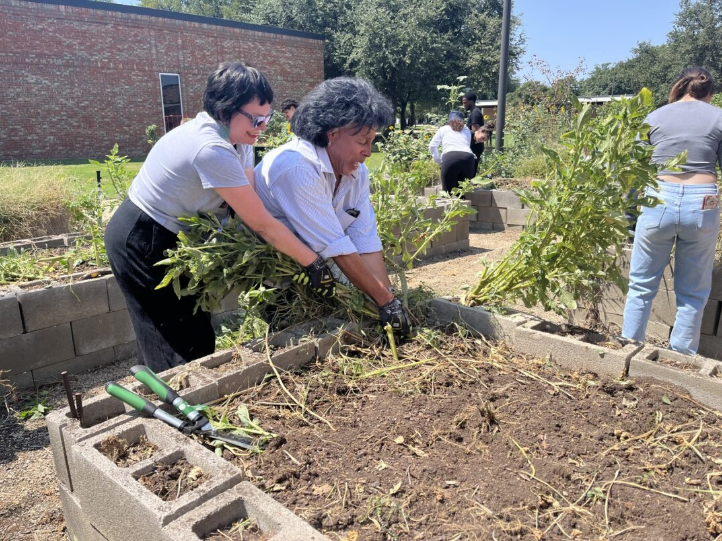By Annette Kirk/reporter
Suicide is like a heart attack. It can happen in an instant and at any given time.
Question, Persuade and Refer training can help save a life just as CPR does with a heart attack.
Whitney Harding, who is certified in QPR, is a volunteer with the Jordan Elizabeth Harris Foundation who partners with UT Southwestern.
Harding was asked by South Campus staff to give a QPR workshop Sept. 14.
“Anyone can become a gatekeeper,” Harding said.
A gatekeeper is someone trained to recognize the signs of emotional distress and crisis. QPR is not limited to trained professionals but is a tool the average student can use to save lives from suicide.
Questioning someone about suicide can be indirect, such as: “How are you feeling?” or direct: “Are you thinking about attempting suicide?” Harding said not to ask questions that depict judgment, such as, “You are not thinking about suicide, are you?”
The second step is to persuade someone to get help. QPR is not a professional license but a guidance tool that allows people to direct someone suffering from suicidal thoughts to a mental health professional.
Assisting someone in crisis means persuading someone cautiously that does not trigger more distress and allows for smooth transition to the next step. “Refer” is when the person in crisis is led to the correct mental health professional.
After training the attendees on QPR, Harding said middle-aged white males are at a high risk of suicide with seven out of 10 suicides completed by white males in 2015. The suicide completion rate of males is 3.5 times higher than women because of the methods of suicide.
Other age groups Harding referenced were pre-teens and teenagers. Having two daughters of her own in high school, Harding has presented the training to Birdville Independent School District students and others via the HOPE Initiative, a peer-based help group using QPR, so that students can talk to someone if they have suicidal thoughts.
Results show the suicide age rate is dropping lower and lower each year, Harding said. The latest results show that 12 years of age is when suicide attempts and completion is becoming more prevalent.


































